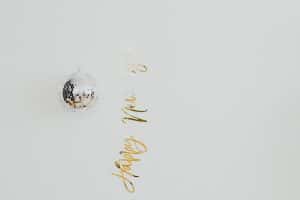Table of Contents
MBTI. DISC. The Big Five.
At least one of these frankly pretty cryptic words should ring a bell. After all, they’re the names of some of the most popular personality tests adopted globally. Whether it was at school, part of a pre-employment hiring process, or even personal curiosity after stumbling upon a test online, it’s likely that you would have taken some sort of personality test at least once thus far.
There’s something innately attractive about personality tests – as if the results could reveal something new or fresh about us that we had never known before. Even outside the professional setting, the popularity of personality tests is evident in pop-culture. Try looking up “Harry Potter Sorting Hat Quiz” and you’ll get results numbering in the ten-thousands. The promise of each: answer a few questions and you’ll get sorted into a house, which is representative of a core trait, an essential something, within you.
What is it about personality tests that draws our interest and sparks our imagination? More importantly, let’s find out how we can use these personality tests as a tool in our own personal development.
How do personality tests work?
Personality tests tend to be made up of a series of questions: typically, you’ll be asked to rank your response to certain prompts. Your responses are then scored against a rubric designed by the test creator; based on this, you’ll be given your result — the truth about who you are.
Generally, each personality test would have their own theory about human behaviour, which informs how they score the tests. Even so, there tends to be similarities in the types of personalities captured within the tests. This is because many are based on Carl Jung’s theories on ‘Psychological Types’. For example, according to Jung, each individual leans towards being more introverted or extroverted; and this could influence how we feel and perceive the world.
As personality tests tend to be self-reported, you’re the judge of your own behaviour. You’d be providing feedback on how you perceive your own actions. This can lead to biases, particularly if you’re subconsciously trying to slant results towards a certain way. As such, well-designed tests would ask the same question in different ways (whether it’s through reversing the prompt or asking it in a different angle) to catch any instances of ‘gaming’ the system.
Why are personality tests so attractive?
Personality tests give us insights into the world – whether it’s something new we didn’t realise about ourselves or cementing our beliefs about a certain person.
As social creatures, humans are inherently curious about our own selves and the lives of the ones around us. However, an individual is a multi-faceted thing and it’s impossible to ever completely understand someone – even ourselves.
Personality tests offer an easy way of apprehending the nature of an individual, and simplifying into digestible concepts that we can quickly comprehend. In a sense, we can use personality tests as a shorthand heuristic to summarise what we think or feel about a person. It makes it easy for us to understand the world around us, and the people we’re interacting with.
Lastly, it can be quite satisfying to receive a tangible result after taking a personality test – especially if it validates what we already know about ourselves. Given how slippery and abstract the idea of personality is, seeing something like EXTROVERTED in black and white can provide one with an amount of psychological relief.
Are personality tests accurate?
There are two aspects to deciding whether a test is accurate:
- Reliability: Referring to the consistency of results, if the test is taken at different time
- Validity: Referring to whether the test measures what it’s set out to measure
Honestly, there’s mixed commentary on the accuracy of personality tests, even those as renowned and well-adopted as the Myers–Briggs Type Indicator. That’s because, as we shared, personality is hard to pin down; additionally, with the tests being self-reported, no matter how well-designed the personality test is, the results tend to be reflective of what you may already perceive about yourself.
What you can do to assess if a personality test is accurate is to see if it corresponds to the results of any other tests that you’ve taken, or to get a friend who knows you well to look at your result. A layperson attempt at cross-validation, if the results are similar in what they say about you, it’s likely that the personality test is relatively accurate.
How personality tests can still help you grow
While personality tests may not be 100% representative of who you are, that doesn’t mean that they can’t help us on our path of self-growth.
Personality tests tangibly describe our strengths and weaknesses; this, alone, can provide us with some insight on the person we want to be. Receiving the results can be a moment of self-reflection, to see if this corresponds with a) how you perceive yourself, and b) how you would like yourself to be.
If the results aren’t what you expect – or are something that you disagree with – perhaps it’s time for deeper self-reflection. Is there something that’s currently bothering you? Has there been a change in how you approach the world? Your results can be a helpful prompt to see if there’s anything you need to tweak in your life.
Additionally, some personality tests even provide suggestions about how you can improve certain aspects of your life, be it maintaining friendships and romantic relationships or your attitude at work. While not everything could be applicable to you, it could still be a helpful source of advice, especially if you’re struggling with a problem at that time.
What’s most important is that: no matter what’s written, don’t take the results too closely to heart. As we’ve established, personality is too wide-reaching for a mere test to capture; and the results can only pin down a small sliver of who you really are. Interpret your results in any way that would be helpful for you, rather than be bogged down about any negative implications on yourself.
A Word From A Space Between
If you’re hoping for self-growth through these tests, a more effective way of improving yourself is by speaking to trained mental health expert. Find an expert you can trust on the A Space Between therapist directory, or get our help to match you with someone that best fits your goals!
Sources:

An experienced health & wellness writer, I am a story-teller at heart. For me, writing is a way of weaving together the little details that make our existence meaningful and significant into a beautiful, larger story.





